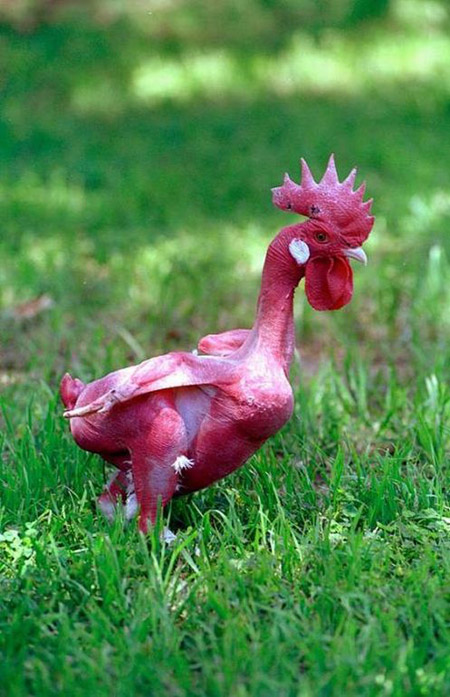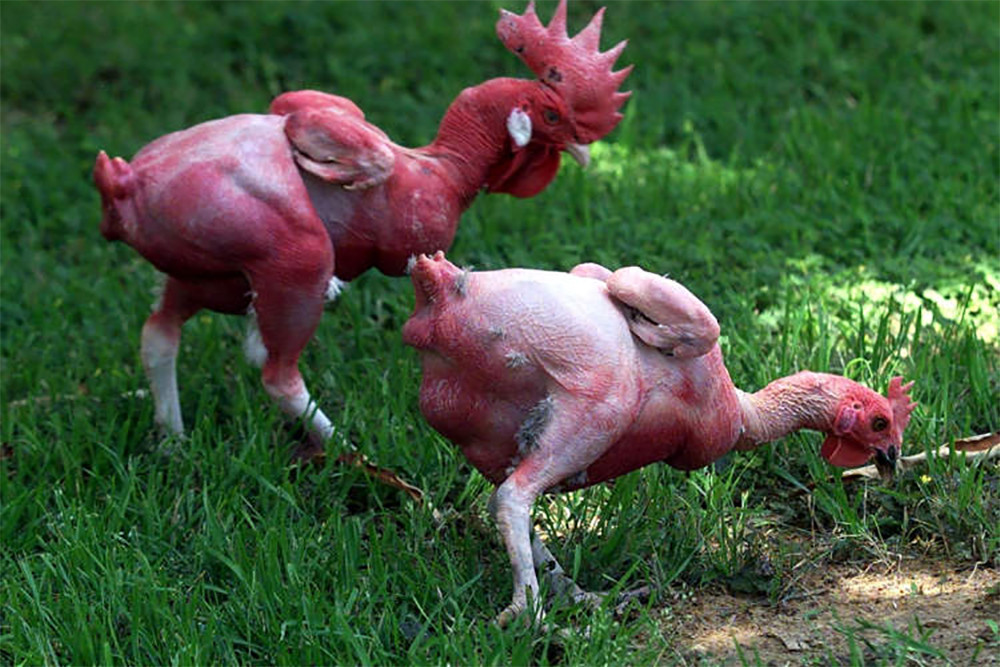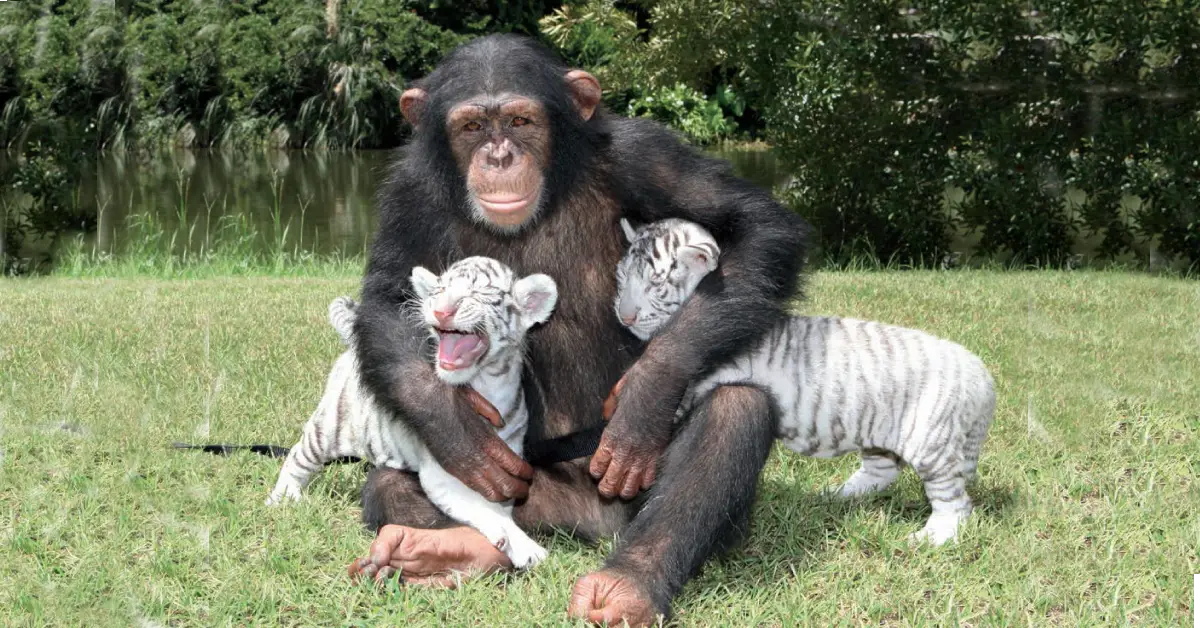Experts say that chickens raised for commercial meat have the genetic characteristics of eating a lot, gaining weight very quickly and their hearts working at a speed of up to 300 beats/minute, causing their body’s metabolism to progress. produced at higher temperatures than other chicken breeds. While rapid weight gain makes commercial chickens perfect for the growing meat industry, they also create a huge problem with overheating.

Raising broiler chickens in hot climates requires expensive cooling systems to control their temperature. To save energy and costs for farmers, Israeli scientists came up with the idea of creating a breed of chicken that does not grow feathers.
According to Oddity Central, Israeli geneticist and poultry breeding expert Avigdor Cahaner is the “father” of the “naked” chicken breed. Although many speculate that Mr. Cahaner used some unnatural gene editing method, the professor at the Hebrew University of Jerusalem insists that he only did it through selective breeding of a breed. Chickens do not naturally grow neck feathers with a regular broiler.
Born in the early 2000s, Mr. Cahaner’s “naked” chicken breed has attracted a lot of attention both for its unusual appearance and for its advertised benefits such as eating less, faster growth, ability to withstand higher temperatures without the need for a cooler and without wasting time plucking feathers.

However, naked chickens also have weaknesses. Having no hair makes them vulnerable to parasites, mosquito attacks, skin diseases, sunburn and the effects of temperature changes. Additionally, roosters have difficulty mating because they can’t really keep their balance while flapping their featherless wings.
However, the main reason why naked chickens have not really become popular in the two decades since their introduction is because people are still not used to their “unnatural” appearance. Some denounced them as “a demonstration of sick science”, while others argued that normal chickens had suffered enough and there was no need to create more vulnerable animals. .
A study by Agriallis magazine concluded that the acceptance rate of featherless chickens among consumers will not be high “due to the fear of using hormones, unusual animals and health effects.”





